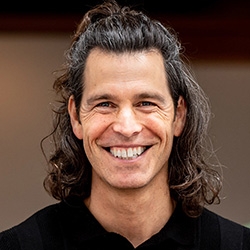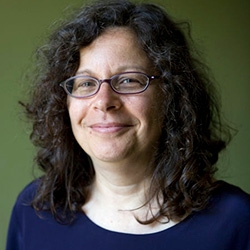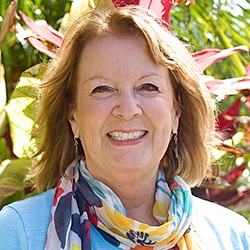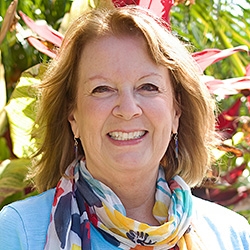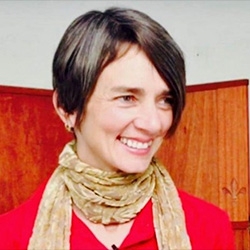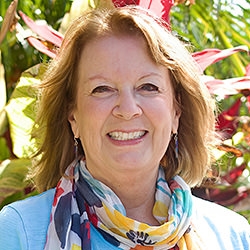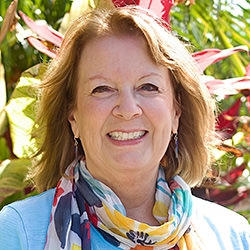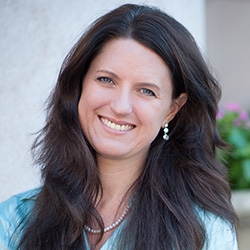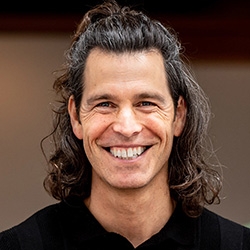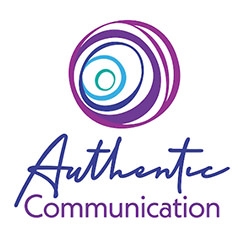
Search Results: willingness
-
- Discover how to figure out what you really want, then how to ask for it
- Learn how to make requests with ease and how to guess the requests of others
- Practice strategies for turning ‘demand energy’ into ‘request energy’
- Be able to stand firmly for your needs and assertively ask for what you want
-
Learn to speak NVC using your own voice and increase ease and flow in all your personal and professional conversations. This 7-session telecourse recording with renowned trainer Miki Kashtan is designed to help you integrate NVC into all aspects of your life by gaining fluency in your practice of NVC and by embodying the principles regardless of the words you use. This course is based on intensive practice and coaching with real-life examples from participants’ lives.
-
Trainer Tip: Ask someone what they enjoy about you being in their life. For example, “Would you tell me 3 specific reasons you enjoy having me in your life?” To a vague reply like, “Oh, you know I love you. I just like spending time with you.” Or, “You’re one of my best employees!” ask for more specificity (eg. “Can you tell me what I do and what needs it meets that makes me one of your best employees?”). This may reveal more to both of you.
-
Trainer Tip: Censoring oneself to maintain peace may seem easier, but it actually requires significant energy. You can free up that energy you use to deny and stuff down your feelings, needs, desires, truth, and figure out and adjust to what others want. Embracing authenticity and expressing true feelings and needs can lead to a liberating experience, unlocking joy, love, and endless possibilities.
-
Empathy is a form of attunement. Empathy is giving your compassionate curiosity by guessing another’s feelings and needs. Consider how you live or relate to each of these 12 essential aspects of empathy. Some of them mention how we can offer empathy without abandoning ourselves, how empathy isn't always the best response, and how "Empathy can be offered when you disagree with another’s opinion, memory, or perspective."
-
Trainer Tip: When we express frustration without blaming others and by clarifying our own needs and requests, we diminish the possibility of hurt feelings and separation in our relationships. So next time you feel very agitated or angry, rather than implying the other person is wrong or at fault, try the following: own your feelings, make a specific request, and rather than implying they need to give up their needs focus on your needs.
-
Trainer Tip: When in a conflict that doesn’t seem to have a solution being aware of your needs, and then being creative and flexible about getting them met, can go a long way to coming up with creative solutions that work for everyone.
-
Welcome to June. It’s the beginning of summer in my area of the world and I usually find myself moving at a slower pace; spending more time outdoors and with friends, more time reading and gardening. I really enjoy the beginning of summer especially because the sun brings just enough heat to feel good, but not so hot to be uncomfortable.
-
Trainer Tip: When we respond in a way that is less than our ideal in terms of using NVC, we don't have to give up and think we are no good at NVC or that NVC doesn't work!
-
The purpose of setting boundaries is to prevent harm to yourself and others. In this video, Yvette Erasmus describes how and why exquisite self-care requires exquisite boundaries.
-
When you want to be heard, first check if your listener is available. This honors yourself, and the other person’s choice about listening. You need to be clear about wanting a particular quality of listening, and that you are willing to wait if that isn’t available in the moment. Read on for how to ask for listening in a way that can build trust that your request isn't a demand.
-
Yoram Mosenzon suggests that when we make positive language requests, we tell people what we want. We give them an image of what would make life more wonderful. What we usually do is tell people what we do not want. This tends to create resistance.
-
As human beings, our inherent goodness makes most of us believe in equality and yet sometimes our conviction in this same 'goodness' may make us blind to the reality of our own behavior. We are so convinced about the innocence of our intention that we seize to look at the impact of our behavior and thus our unconscious biases often go unexamined and unchallenged. Diversity, equity and inclusion work will only be of lip-service until we are willing to look at our own unconscious biases. Listen as Anisha Pandya encourages you to look at the possibility of how our self-awareness is so limited and one of the ways of expanding that awareness is by moving beyond our intention, looking at the impact of our behavior and remaining open to feedback.

